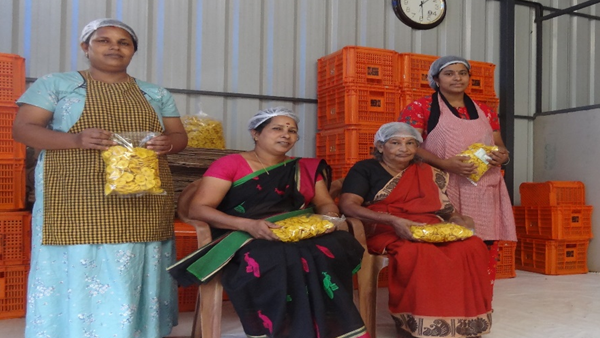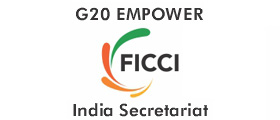Remya, a 30-year-old newbie entrepreneur, wants to start her own bakery and cake shop, expanding her home baking skills to sell in the local markets.
Shinila, around 35 years of age, has a way with scrap papers; she turns them into usable paper bags.
Ebily, a 26-year-old, has a different plan. With her husband, Adiva, a travel agent, she is soon starting a playschool for the kids of working women from her neighbourhood.
Then there’s another Remya, a middle-aged woman belonging to the economically and socially backward scheduled tribe called Uraly, who runs a small café from her home, but now wants to scale it up. Her friend Sushila has a catering business that she, too, wants to scale up.
There’s also Surya, a musician who runs an all-woman musical band that plays bamboo-made instruments, from harmonium to flute to guitar. They are called the Malamuzhakki band.
The band now wants to go global – and so needs financial support and training.
These are assorted examples from across Wayanad, the lone Aspirational District of Kerala, that are closeted in a two-day entrepreneurship development programme (EDP) hosted by the Kudumbashree community development society (CDS) at Kalpetta, the district headquarters.
“Every single woman in this training here has plans or ideas that they want to realise,” says Rekha K.K., a micro enterprise consultant at the Start-up Village Entrepreneurship Programme of Kerala’s widely acclaimed poverty eradication initiative called Kudumbashree. Rekha trains and helps these women develop their business plans.
Over the next year, the Kudumbashree collective, backed by the State Government, would help these members realize their dreams and start off on a journey of their own.
From running tens of micro-small-medium and large enterprises to delivery of services to leading social actions, from dealing with women’s empowerment to tackling violence against women, to gender discrimination, Kudumbashree addresses virtually every facet of life in Kerala.
As the assistant district mission officer Vasu Pradeep informs: “Kudumbashree collectives are also into constructing rural homes, some initial experiments have been encouraging.”
Kudumbashree in Malayalam means ‘prosperity of the family’; it represents the mission and Community Network. Set up in 1997, following the recommendations of a Task Force appointed by the State Government, it came about following the devolution of powers to the Panchayat Raj Institutions (PRIs) in Kerala.
The focus is to invest socially and economically into women.
“Very rarely will you come across instances of loan defaults,” says Jayesh Vellery, the district project manager for tribal sector.
Income generation apart, the collective lends impeccable social support to women.
Across India, Kudumbashree is like a role-model for similar movements – Umed in Maharashtra, Sanjeevani in Karnataka, or Mission Shakti in Odisha.
Indira Sukumaran, chairperson of the Community Development Society in Kalpetta, a highly motivated leader and motivator, leads 570 neighbourhood groups. Her plan, she says, is to make all these groups productive and income-oriented so that every single member has financial stability.
“A rupee spent on women is a rupee earned,” she says.
 |
 |
 |
These stories of women-led development have been compiled by UN Women India. All copyrights to the stories and images are held by UN Women India Country Office dated December 2022. |

